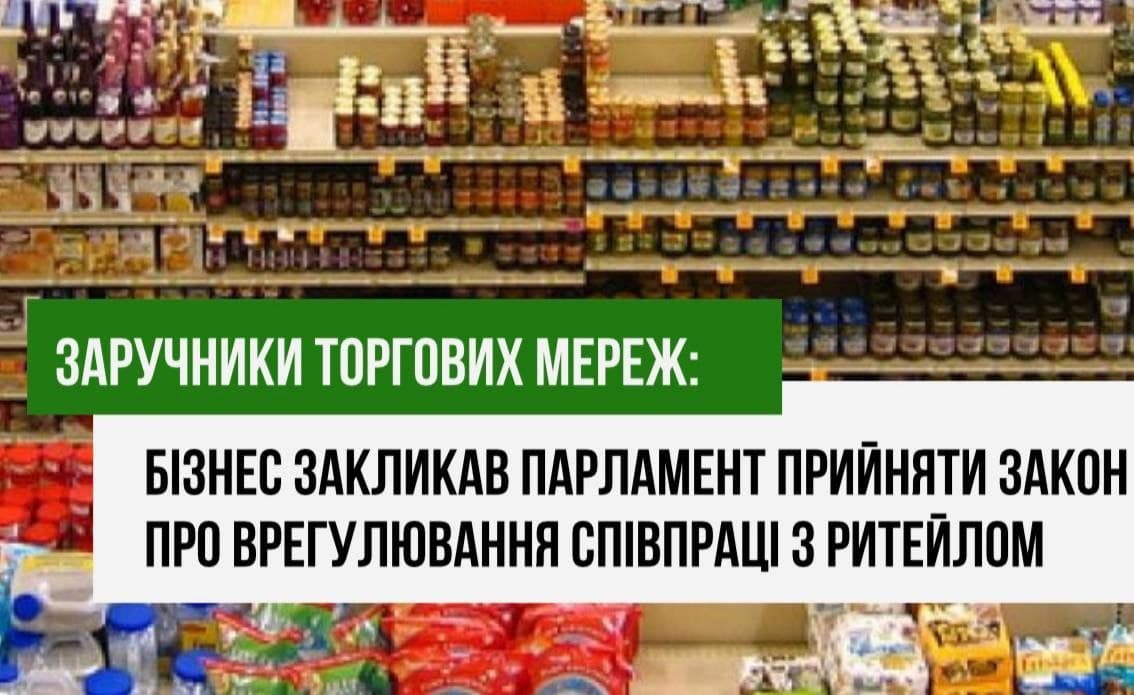
Food producers and economists claim excessive delays in payments for delivered products. For example, under the contract, it can reach 120 days (with an average implementation period of 14 days). In fact, payment can come to the producer on the 160th day. Vendors sometimes explain such actions by lack of money. However, under such a scheme, it is the producers who suffer the most - they are simply left without working capital. In addition, they become uncompetitive in relation to foreign suppliers who have cheap financial resources.
Conscientious market participants are in unequal conditions too, but in government offices authorities see in this situation even signs of a pyramid scheme. In addition, the market is monopolized, as each new supermarket closes small stores within a radius of 1 kilometer. According to producers, such working conditions eliminate the possibility of development for business, do not promote payment discipline and do not protect the competitive environment.
"We have to support Ukrainian producers, who today occupy a weak position on supermarket shelves. This will strengthen our national food security, make our producers competitive and support their market position, - says People’s Deputy Dmytro Solomchuk, - And most importantly - it will give impetus to economic development. There are also responsible networks, but our task is to create a legislative balance between the whole business. We cannot allow a situation in which, due to the shortcomings of the legislation, Ukrainian producers lose competition to foreign products in large retail chains."
The Ukrainian producer must create jobs and ultimately ensure the growth of the runway.
"In Europe, deferred payment for products depends on the timing of its implementation and this is normal practice. Rhetorical questions arise - is it fair for producers to receive money for a product in six months, while during this time, for example, a third of its raw materials may become more expensive? How fair is the price of products in large chains, which in some places can be twice as high as in the same stores of the producer's network?” Dmytro Solomchuk added.
According to the people's deputy, under such conditions, all producers (who are network suppliers) in the country do not receive about USD5 billion, which remain in the working capital of retail. The last one still pays a preliminary payment for all imported products. Because of this, it is cheaper for Ukrainian producers to build production abroad, provide Ukrainians with jobs there, pay taxes there, and sell products in networks of Ukraine.
This situation can be changed by the adoption of the draft bill 6155 “On the basic principles of trade of food products”, which is awaiting consideration in the parliament. Its content was discussed at the meeting by representatives of producer companies and associations-market participants, in particular, the UAC, the Association of Pig Breeders of Ukraine, the Association of Milk Producers, Ukrkondprom, the Ukrainian Association of Bakers and the Business100 community.
The document outlines the requirements for sales contracts, sets deadlines for deferral of payments for goods received. In particular, for their violation it sets the amount of penalties for each day of non-payment.
Separately, the draft law prohibits prescribing in the contract conditions that may change the range of products of the business entity, apply any changings when paying for the delivered products, return them to the supplier except some certain cases, and so on.
"We hope that the people's deputies will finally listen to the Ukrainian producer," said the UAC Deputy Chairman Mykhailo Sokolov, “The document, which is currently awaiting consideration in the parliament, can really become the basis for the formation of fair market relations in the field of food sales, when neither side will be able to abuse its dominant market power. We have been waiting for this for years, and we could have invested our honestly earned money in the development of production for a long time, instead of lending for the purchase of imported goods through retail chains. "
Oleh Hetman, an economist and expert at the Economic Expert Platform, notes that in normal market relations, regulation by the state is not appropriate. However, when a certain market has distortions, in certain regions or throughout the country there are manifestations of the prevailing market power of individual market players, government intervention is required. “As a result, market distortion harms all citizens of Ukraine. The EU has long had a separate Directive of the European Parliament and of the Council on unfair trade practices between agricultural and food businesses. It prohibits actions that can be interpreted as unfair in the relationship between buyers and suppliers,” added the economist.
Information reference:
The draft Law of Ukraine "On Basic Principles of Trade in Food Products" №6155 was submitted to the Verkhovna Rada on October 8, 2021, currently being considered by the Committee on Economic Development https://bit.ly/3nsamtb
Wednesday, 10 November 2021